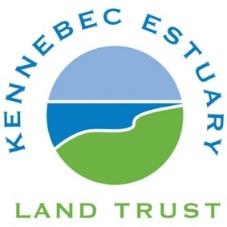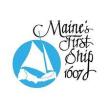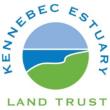Founding Fish: 17th Century Cod Fishing
Maine’s First Ship and the Kennebec Estuary Land Trust are pleased to welcome Mike Dekker, author and historian, to take lecture attendees on a journey to understand the historic, economic, environmental, and cultural significance of the Atlantic cod fishery in the 17th century. Environmental and history enthusiasts alike will appreciate this in depth look at how one fishery played a part in shaping world affairs. On Thursday, July 1 at 7 p.m,, participants will have the opportunity to attend this lecture either in person at the Bath Freight Shed or virtually by Zoom.
Fishing has been a mainstay of the region’s economy since the arrival of Europeans in the early 17th century. Originally plying the waters of the Gulf of Maine on a seasonal basis, English fishing crews established permanent, year-round fishing stations from the Isle of Shoals to Monhegan by the mid 1620’s. Exports of dried, salted cod to Europe, Africa, South America and the Caribbean ranked as one of the primary economic engines of the New England economy throughout the colonial period. The finest fish went to the ports of Catholic Europe where dried salted fish became the food of the masses. Along the west coast of Africa fish was used as currency in the slave trade, while in Brazil and the sugar islands of the Caribbean, low grade fish unsuitable for markets elsewhere were purchased to feed burgeoning slave populations. The Atlantic fishery was of such economic importance it often figured heavily in considerations of war, peace and diplomacy. Despite the cod fishery’s seemingly endless bounty, today it stands on the brink of collapse due to a host of human and environmental factors.
Registration is free and required in order to attend the in-person event at the Bath Freight Shed (limited seating to allow for social distancing) or to receive the Zoom link for the presentation (sent out to registrants before the event). For more information and to sign-up, visit www.mfship.org/events. Click on the appropriate button for your preferred mode of attendance, in-person or virtual. The Bath Freight Shed is located at 27 Commercial Street in Bath.
Growing up and residing in Mid Coast Maine, Mike Dekker has developed a life-long passion for the region’s past. An avid student of early American history and material culture, he presents educational programs for historical societies, museums, historic sites, schools and the public. Mike is the author of the book The French and Indian Wars In Maine, which uncovers the tragic and largely forgotten story of the six wars which ravaged Maine between 1675 and 1760. In 2017 Mike participated in an international conference hosted by the Maine Ulster Scots Project and the Ulster-Scots Agency dedicated to the history and culture of the Scots-Irish. The paper Mike presented at the conference, Resistance and Reprisal: The Scots-Irish of Mid-Coast Maine During the French and Indian War has been published in the book 1718-2018 Reflections on 300 Years of the Scots Irish in Maine.
Maine's First Ship mission’s is to promote an appreciation of Maine's early shipbuilding heritage, the Popham Colony, and its relationship with the Wabanaki. Learn more by visiting www.mfship.org or call (207) 443-4242. The Kennebec Estuary Land Trust is a membership supported organization dedicated to protecting the land, water and wildlife of the Kennebec Estuary. FMI visit www.kennebecestuary.org or call (207) 442-8400.
Event Date
Address
United States































